In the latest Revolutionaries of Wellbeing podcast episode, Dean Yates, author and former Reuters journalist, emphasises why organisations need to up their game by becoming trauma-informed and understanding moral injury because it’s not just those on the frontline who are exposed.
During the height of his career, Yates reported on major events like the Bali bombings and Boxing Day tsunami. However, it was his lived experience of PTSD and moral injury that revealed a serious issue: many jobs are mentally taxing, and workers often aren’t equipped for the true psychological toll.
Reflecting on his own experience, Yates says, "The moral injury, the psychological consequences I suffered as a result of them doing that to me, it was actually harder for me to deal with than all the trauma I witnessed overseas as a journalist."
He also emphasises the widespread impact of trauma.
"At the end of the day, trauma is trauma. It's a cluster bomb and it goes off and it affects every single person in the house.”
For Yates, the consequences were profound. Diagnosed with PTSD in 2016, he spent time in a psychiatric ward, where he observed a common and troubling pattern.
"Virtually everyone in that psych ward had been abandoned by their workplace."
His story highlights a critical oversight - while companies prioritise physical safety, effective mental health support is often sub-par.
Yates urges employers to consider the potential for trauma in their workplaces. It’s not just high-risk roles, he says. Retail workers face crime, teachers are in challenging environments, and lawyers deal with distressing cases. All are vulnerable.
"If we're going to make a difference in the workplace, there has to be a revolution. Because at the moment it's just not happening, it's not working," Yates says.
The podcast episode introduces the idea of becoming "trauma-informed" - recognising signs of distress, having tough conversations, and establishing strong support systems.
"Workplaces need to ask themselves: What is the potential for trauma in our environment?," Yates says.
Yates envisions a workplace where employees feel safe asking for help, and companies are equipped to offer it.
The episode also delves into moral injury - what Yates calls the "moral dimension of trauma." This occurs when someone’s sense of right and wrong is deeply violated, often in high-pressure scenarios.
Yates stresses the importance of integrity in the workplace.
"You have to operate and act in line with your moral compass and your values."
The takeaway? Organisations need to step up their mental health efforts when it comes to trauma. Regular check-ins with employees on leave, robust return-to-work plans, and a culture that normalises mental health discussions are key.
The podcast delivers a sobering message about the consequences of ignoring workplace trauma.
Yates says bluntly, "I have seen lives lost because of how organisations treat their people. Part of this book's message is to make organisational leaders more aware of the need to prioritise mental health in the workplace."
Yates’ journey from journalist to mental health advocate offers crucial insights for HR professionals, safety officers, and company leaders. His story highlights the need for proactive measures to protect employees’ mental wellbeing across all industries.
This episode is also a gentle nudge for companies to rethink how they handle mental health support and trauma awareness. It's not just about being a good employer - it's about recognising that mental wellbeing is crucial in the workplace.
As our work lives get more complicated, addressing these issues isn't just nice to have - it's absolutely essential.
Listen on your favourite platform: Discover the ROW Workplace Wellbeing Podcast on popular platforms such as Spotify, Apple, Google, Amazon Music/Audible and iHeartRadio.
Want to read more?
Sign in below if you're a Revolutionary (member).
Not a member yet?
Join in seconds! Just $10/month (+ any tax).
Cancel anytime.
Be a revolutionary and join now










